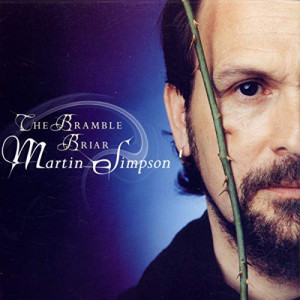 This album will go down in history. You won’t believe how good it is! If ever there was an album that makes me, and probably loads of others, want to go out and burn my guitar, this is it.
This album will go down in history. You won’t believe how good it is! If ever there was an album that makes me, and probably loads of others, want to go out and burn my guitar, this is it.
I think Martin is one of the most skillful and innovative guitarists on the scene at the moment. Although it was good, I was not overly impressed with his choice of songs on his previous album Secret Agent. But this album is a welcome change of direction for Martin. Most of the songs being of traditional ‘English’ origin as opposed to Irish or Celtic, of which there is so much around at the moment. The result is an absolutely brilliant album that really is a musician’s benchmark.
Eleven out of the thirteen tracks are traditional standards that you may have heard before, but the timing, delivery, and singing are so fresh you could be forgiven in thinking that you have never heard the songs before. It is not often these days you can buy an album and say you like every track on it!
One of the nice things about traditional English folk song is the way in which individual performers can interpret the way that the song should be sung or performed. They are free to put their own stamp on the song. Sometimes this is good sometimes not. I believe “Beauty is in the ear of the beholder.” I have probably heard all of these songs sung before by dozens of other singers, each in their own way. One of the things that impressed me with this album is the time signatures of the songs. One man, one guitar, they must have been recorded in real time. All too often these days singers will import guest musicians to play the guitar (or the music) and just singer along to the ‘perfect’ backing.
The album starts with ‘Polly on the Shore’ (trad), one of the many press gang songs. I first heard this sung by Martin Carthy, then by Fairport Convention, who did a superb folk rock version, but this is how it should be heard; it is head and shoulders above the others. This is followed by ‘The Lovers Ghost’ (trad). The words are to be found in The Penguin Book of English Folk Songs, but Martin plays this as an instrumental on slide guitar. Next is ‘Fair Annie’ (trad) about a servant maid who is expected to stand aside after having seven children by the lord when he brings his new bride home. ‘Dives and Lazarus’ (trad) is about two brothers, one rich and the other poor. What more can man desire than the air, water, earth and fire of ‘The Four Angels’ (trad)?
One of my favourite tracks is next, ‘Betsy the Serving Maid ‘(trad). The squire’s son falls in love with the serving maid, family don’t like the idea, so Betsy is transported of to America, and you can guess the rest. Title track for the album comes next .’The Bramble Briar’ (trad) another song from The Penguin Book of English Folk Songs. This time a servant courts the rich farmer’s daughter and her brothers kill him! The English class system raises its ugly head. On the next track ‘Banks of Sweet Primroses’ (trad), Martin chooses again to ignore the words and turns it in to an instrumental. ‘Rounding the Horn’ (trad) some may know by another title, ‘The Gallant Frigate Amphitrite’, but this version also is found in The Penguin Book of English Folk Songs.
After ‘The Princess Royal’ (trad tune), follows another of my favourite modern day sea songs ‘Sammy’s Bar’ by Cyril Tawney. It is the only contemporary song on the album, but it fits in so well. ‘Leaves of Life’ (trad) I first heard from the Watersons; I believe it is a gypsy Easter carol, this is the one track where Martin does not play his guitar. Instead he is singing to the cello of Barry Phillips. The album ends with ‘Air for Maurice Ogg’ (Alistair Anderson), beautifully played on his guitar. This is an album that commands you to sit down, listen, and pay attention to the words.
I found it hard to say which is the best song on the album. Each one is executed with perfect backing from Martin’s guitar. On two tracks he is backed by the accordion of Chris Parkinson and on two other tracks the cello of Barry Phillips. He also has some backing vocal from Jessica Radcliffe and just for good measure Martin Carthy adds backing guitar on three tracks.
If you have a passion for good traditional music and song, buy, beg, borrow or steal this album, and you won’t be disappointed.
(Topic Records, 2001)
